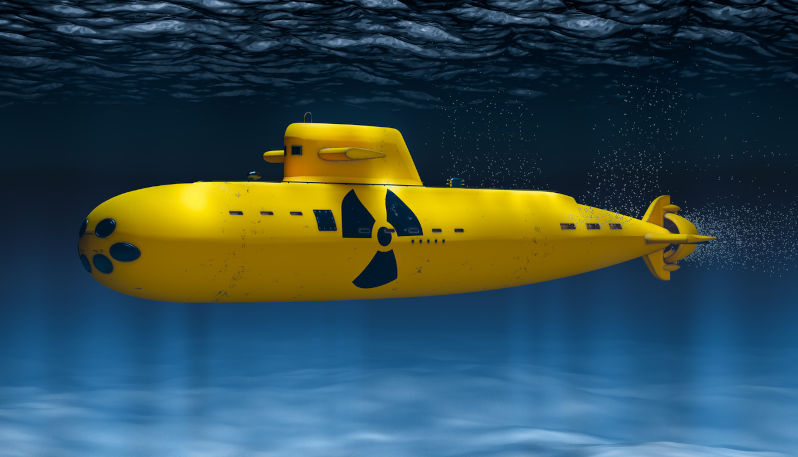Perhaps AUKUS should be renamed MAUKUS – the Morrison, Albanese, United Kingdom and United States agreement – to clearly identify those responsible. Indeed, it is surprising that neither Defence Minister Richard Marles nor Defence Industry Minister Pat Conroy invited Australian Labor Party National Conference delegates to support a motion of appreciation to former Prime Minister Morrison for providing a ready-made defence policy for the Labor Government.
Does Kim Beazley support AUKUS as an Historian, Former Defence Minister or Former Ambassador to the United States?
As a former Defence Minister it is entirely predictable that Kim Beazley would be an enthusiastic cheerleader for the massive $368 billion nuclear submarine deal now in place. Writing with Peter Dean for the Australian Strategic Policy Institute, “The Strategist”, Beazley celebrates the success of AUKUS at the recent ALP National Conference in Brisbane.
“There was no rebellion. In the end support for AUKUS was resoundingly endorsed.”
However, as an historian he should be more diligent in presenting evidence to support his claim.
In the lead up to the National Conference, there was considerable angst within government and party hierarchies, anxious about dissent on two fronts, AUKUS and Palestine. The Prime Minister himself led the charge announcing there would be no debate on these policy issues. Clearly this was unacceptable and mobilised many members in Labor branches and trade unions to express their concerns about the way a major defence decision had been taken without open and independent consideration about the risks and costs to the Australian community. The need for an AUKUS debate at the National Conference became a media focus so ultimately of course the ban was withdrawn.
However, it is important to record that at the conclusion of debate the vote was not put to conference delegates for a democratic show of hands to record the numbers in support as that was deemed too politically risky. Instead, this motion of such significance to the future of Australia was passed on the voices and various reports have estimated that about one third of delegates voiced their opposition.
The ALP National Conference focus on AUKUS has revealed grass root activism across Australia questioning our lack of independence, our increased militarisation and unknown agreements which lock us into future American defence policy. Labor Against War, a network of ALP branches, is leading a strong and growing movement against Australia outsourcing its defence policy. Unionists, students, church and peace groups are active in many communities determined that Australia must not be led into another war launched from Washington. The Australian Education Union is leading a revolt against the way the Defence Department is encroaching on schools’ curriculum and university students oppose those staff who welcome defence grants to further the training of nuclear submariners. Furthermore, a number of these groups are already in contact with our Asia Pacific neighbours who are distressed that so many billions of dollars are being directed into our military infrastructure while Australian dollars are so limited in tackling the impacts of climate change in the region.
The Lowy Institute April 2023 Survey of Australian attitudes reveals that neither the Albanese Government nor the Australian Labor Party can assume their current defence policy is “resoundingly endorsed“ by the community. Polling attitudes to defence policy show widely divergent opinions.
- 48% consider AUKUS will make us safer, while 44% consider the agreement makes us less safe.
- Nuclear powered submarines are supported by 33%, but only 28% consider they will deter conflict, while 30% believe they will contribute to greater risk.
- The cost of Australia’s nuclear powered submarine program is supported by 27% but rejected by 44%.
- 28% consider Australia should invest more in defence to deter our enemies but 40% wanted investment closer to home.
- There was limited support for foreign military to be based in Australia with 22% supporting the UK and 17% the U.S.
Neither the Albanese Cabinet nor the defence and security establishments can ignore the increased disquiet many Australians share about the way AUKUS has been imposed on future generations without rigorous scrutiny and independent assessment. We have witnessed two Prime Ministers, Scott Morrison and Anthony Albanese, fail their due diligence test requiring expert analysis of the economic, social and environmental impacts of AUKUS. Perhaps indeed this defence policy should be renamed MAUKUS, -the Morrison, Albanese, United Kingdom and United States agreement to clearly identify those responsible! Indeed, it is surprising that neither Defence Minister Richard Marles nor Defence Industry Minister Pat Conroy invited National Conference delegates to support a motion of appreciation to former Prime Minister Morrison for providing a ready-made defence policy the Labor Government could so easily adopt!
According to the article in “The Strategist”:
“Nuclear powered submarines are now a core Labor value and a critical part of the party’s platform to support both deterrence and self-reliance.”
Really? Just how could nuclear powered submarines be regarded as a core value? How will Australia’s eight nuclear submarines deter an aggressor? And how does an outsourced defence policy make us self-reliant when it ties us closer to allies with a record of warfare?
The US Congressional Research Service has reported 251 American military interventions around the globe 1991 -2021 (Multipolarista, September 2022) so it is only realistic for Australians to worry about our future security depending on a country so preoccupied with military solutions.
Kim Beazley has a proud record of service to the Australian people and long history of commitment to the real values of the Australian Labor Party.
Perhaps as he takes on his new role as chair of the Australian War Memorial, he will need to review his understanding of Australia’s war history, which highlights the tragic consequences of Australia’s subservience to foreign governments.
Margaret Reynolds has a long commitment to the peace movement dating back to the Anti-Vietnam Moratorium to current advocacy against militarism as National President of Women’s International League for Peace and Freedom.(Australia )
She was a Labor Senator for Queensland 1983-1999 and a member of Bob Hawke’s Ministry 1987-1990. She taught Human Rights and International Relations at University of Queensland 1999-2004 and has worked with a number of international non-government organisations.

